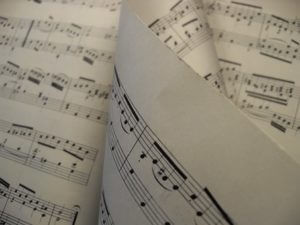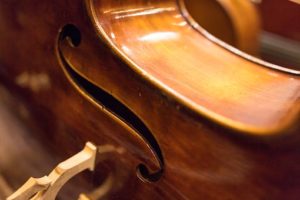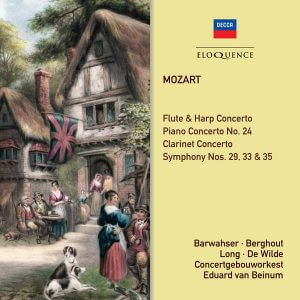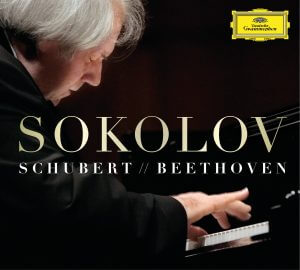Andrew Wright (piano)
Divine Art dda 25113
TPT: 64’48”
reviewed by Neville Cohn
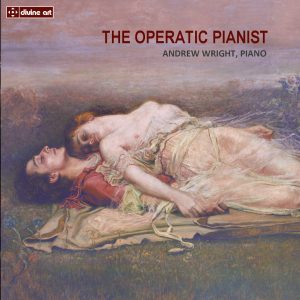 During the 19th century, there was a remarkable flowering of operatic composition. It met a huge popular demand and every European city of significance built an opera house to cater for the genre’s enthusiasts. But for opera lovers living in small towns, say, or in villages, there was almost no opportunity to experience opera, apart from, perhaps, a visit from this or that small touring company. To counter this shortage – or complete absence – of opera beyond the big cities, pianists responded to this need by incorporating into their recitals arrangements of operatic excerpts, most frequently a favourite aria, say, or this or that overture or dance episode.
During the 19th century, there was a remarkable flowering of operatic composition. It met a huge popular demand and every European city of significance built an opera house to cater for the genre’s enthusiasts. But for opera lovers living in small towns, say, or in villages, there was almost no opportunity to experience opera, apart from, perhaps, a visit from this or that small touring company. To counter this shortage – or complete absence – of opera beyond the big cities, pianists responded to this need by incorporating into their recitals arrangements of operatic excerpts, most frequently a favourite aria, say, or this or that overture or dance episode.
This was a successful development and some pianists were able to maintain careers based largely on these operatic offerings. And until radio and recordings made opera more widely available, operatic extravaganzas at the keyboard kept many pianists very busy on the concert circuit.
Nowadays, operatic excerpts in piano recitals are rare – and Andrew Wright is one of the few musicians to maintain the tradition. This fascinating CD includes not only 19th- century operatic extracts but some composed by Wright himself.
They make intriguing listening.
Operatic extracts for piano solo or piano duet were also very popular in the drawing rooms of wealthy homes in European cities. This was especially so for young ladies for whom some accomplishment at the piano was considered desirable in the marriage stakes.
Numbers of significant composers made arrangements of grand opera for piano solo, the most famous being Liszt. His versions of extracts from Wagner’s operas are still occasionally encountered in piano recital programs. Israeli conductor Asher Fisch recently brought out a memorable CD of piano arrangements of Wagnerian opera extracts.
During much of the 19th century and up until the 1920s, virtuosic arrangements of this type were an ineradicable feature of just about every pianist on the international concert circuit.
But in broad terms, the age of virtuoso arrangements for piano of operatic extracts is largely past – but there’s a good deal to be said in positive terms of Andrew Wright’s CD “The Operatic Pianist”.
In the grand tradition of pianists playing their own arrangements of excerpts from this or that opera, we can listen to Wright’s own keyboard versions of extracts from, inter alia, Meyerbeer’s Robert le Diable in which he seems positively to revel in the many challenges posed by music that was never intended to be played on the piano. I think Meyerbeer would have been chuffed no end by Wright’s keyboard arrangement. It’s a winner.
Listen to the version of Casta Diva from Bellini’s Norma, here in an arrangement by Sigismund Thalberg (no mean pianist himself). It is most beautifully played, its inherent simplicity of line presented with most appealing tone quality. Wright is no less persuasive in an arrangement of one of Wagner’s most loved arias: The Evening Star from Tannhauser. And the aching beauty of Liszt’s version for piano of Isolde’s Liebestod is splendidly revealed.
(piano)
Divine Art dda 25113
TPT: 64’48”
reviewed by Neville Cohn
 During the 19th century, there was a remarkable flowering of operatic composition. It met a huge popular demand and every European city of significance built an opera house to cater for the genre’s enthusiasts. But for opera lovers living in small towns, say, or in villages, there was almost no opportunity to experience opera, apart from, perhaps, a visit from this or that small touring company. To counter this shortage – or complete absence – of opera beyond the big cities, pianists responded to this need by incorporating into their recitals arrangements of operatic excerpts, most frequently a favourite aria, say, or this or that overture or dance episode.
During the 19th century, there was a remarkable flowering of operatic composition. It met a huge popular demand and every European city of significance built an opera house to cater for the genre’s enthusiasts. But for opera lovers living in small towns, say, or in villages, there was almost no opportunity to experience opera, apart from, perhaps, a visit from this or that small touring company. To counter this shortage – or complete absence – of opera beyond the big cities, pianists responded to this need by incorporating into their recitals arrangements of operatic excerpts, most frequently a favourite aria, say, or this or that overture or dance episode.
This was a successful development and some pianists were able to maintain careers based largely on these operatic offerings. And until radio and recordings made opera more widely available, operatic extravaganzas at the keyboard kept many pianists very busy on the concert circuit.
Nowadays, operatic excerpts in piano recitals are rare – and Andrew Wright is one of the few musicians to maintain the tradition. This fascinating CD includes not only 19th- century operatic extracts but some composed by Wright himself.
They make intriguing listening.
Operatic extracts for piano solo or piano duet were also very popular in the drawing rooms of wealthy homes in European cities. This was especially so for young ladies for whom some accomplishment at the piano was considered desirable in the marriage stakes.
Numbers of significant composers made arrangements of grand opera for piano solo, the most famous being Liszt. His versions of extracts from Wagner’s operas are still occasionally encountered in piano recital programs. Israeli conductor Asher Fisch recently brought out a memorable CD of piano arrangements of Wagnerian opera extracts.
During much of the 19th century and up until the 1920s, virtuosic arrangements of this type were an ineradicable feature of just about every pianist on the international concert circuit.
But in broad terms, the age of virtuoso arrangements for piano of operatic extracts is largely past – but there’s a good deal to be said in positive terms of Andrew Wright’s CD “The Operatic Pianist”.
In the grand tradition of pianists playing their own arrangements of excerpts from this or that opera, we can listen to Wright’s own keyboard versions of extracts from, inter alia, Meyerbeer’s Robert le Diable in which he seems positively to revel in the many challenges posed by music that was never intended to be played on the piano. I think Meyerbeer would have been chuffed no end by Wright’s keyboard arrangement. It’s a winner.
Listen to the version of Casta Diva from Bellini’s Norma, here in an arrangement by Sigismund Thalberg (no mean pianist himself). It is most beautifully played, its inherent simplicity of line presented with most appealing tone quality. Wright is no less persuasive in an arrangement of one of Wagner’s most loved arias: The Evening Star from Tannhauser. And the aching beauty of Liszt’s version for piano of Isolde’s Liebestod is splendidly revealed.
